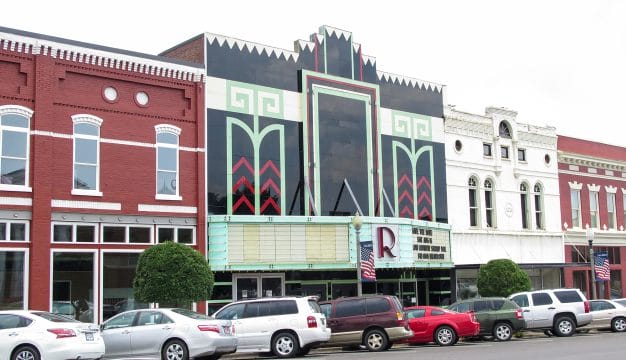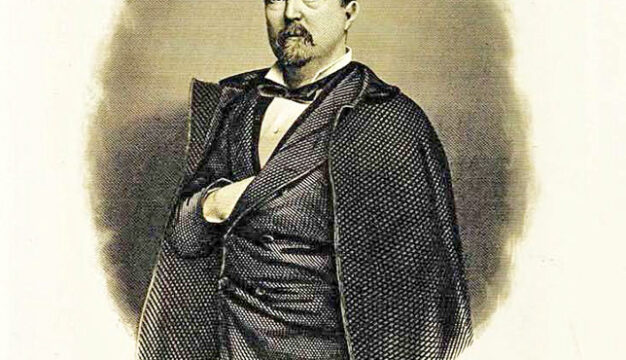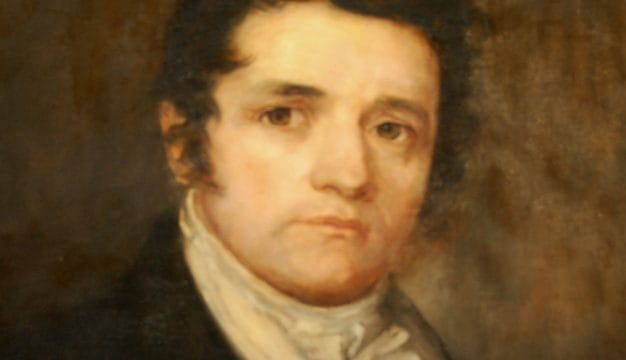Gwen Patton
 Gwen Patton
Gwendolyn Marie Patton (1943-2017) was leading civil rights activist and educator who had a career much like the better-known Angela Davis with whom she was acquainted. Patton first became involved in the movement as a teenager helping African Americans register to vote with her grandparents, who were members of the Montgomery Improvement Association (MIA), and also during the Montgomery bus boycott. At Tuskegee University, she participated in numerous related activities and worked closely with the Student Nonviolent Coordinating Committee (SNCC) and the Lowndes County Freedom Organization. She later helped establish a variety of human rights and anti-war organizations in which she championed the feminist and Black Power movements, international political prisoners, and even the Cuban Revolution, Communism, and Marxism. She continued to fight for African American political representation as a delegate for Jesse Jackson's 1984 presidential run and then as a candidate for the Alabama legislature in 1986 and the U.S. Senate in 1992. A historian, Patton later led the development of the H. Councill Trenholm State Technical College (now Trenholm State Communty College) Archive.
Gwen Patton
Gwendolyn Marie Patton (1943-2017) was leading civil rights activist and educator who had a career much like the better-known Angela Davis with whom she was acquainted. Patton first became involved in the movement as a teenager helping African Americans register to vote with her grandparents, who were members of the Montgomery Improvement Association (MIA), and also during the Montgomery bus boycott. At Tuskegee University, she participated in numerous related activities and worked closely with the Student Nonviolent Coordinating Committee (SNCC) and the Lowndes County Freedom Organization. She later helped establish a variety of human rights and anti-war organizations in which she championed the feminist and Black Power movements, international political prisoners, and even the Cuban Revolution, Communism, and Marxism. She continued to fight for African American political representation as a delegate for Jesse Jackson's 1984 presidential run and then as a candidate for the Alabama legislature in 1986 and the U.S. Senate in 1992. A historian, Patton later led the development of the H. Councill Trenholm State Technical College (now Trenholm State Communty College) Archive.
Patton was born on October 14, 1943, in the Detroit, Michigan, suburb of Inkster to Clarence Robert Patton and Jeanetta "Dot" Bolden Patton. She had a brother and a half sister. Her parents were born in Montgomery to prominent Black families and traveled north from Montgomery for better economic opportunities during the Second Great Migration. In Detroit, her father was an auto worker and union representative and her mother attended business school; they would become wealthy by winning a lottery. Patton's great-great-grandfather Robert M. Patton was a landowner and carpenter who constructed Montgomery's first black-owned hotel, the Ben Moore Hotel. A Patton uncle, Elmore McCall, owned a successful trucking company in Lowndes County. He was killed by local whites jealous of his success in December 1947. During the summers of her childhood, Patton visited her maternal grandmother, Juanita Bolden, in Montgomery. At the age of nine, Patton engaged in one of her first acts of resistance to racism when she ordered a cup of water at Liggett's drug store in Montgomery. After the soda fountain clerk called her a racist term, she poured the cup of water on the table and left. Patton worked with her grandparents and the MIA when she was in Montgomery during the bus boycott and hosting "citizenship schools" at their home, tutoring prospective African American voters on how to complete the literacy test, a key barrier to their ability to register to vote. These informal schools were an outgrowth of similar civil rights activities that had been promoted by the Highlander Folk School in Tennessee. Following the death of her mother, Patton permanently moved in 1960 to Montgomery, where she had extended family. She joined in mass meetings following the May 1961 beatings of the Freedom Riders, one of whom was sheltered at an aunt's house. Though her elders were allied with the Southern Christian Leadership Conference, Patton was more activist and confrontational in the struggle for racial equality and her experiences in Montgomery laid the foundation for future organizing activities.
 Tuskegee Student Protest March
After graduating as salutatorian from George Washington Carver High School in May 1961, Patton began attending Tuskegee Institute (present-day Tuskegee University) the following autumn. In January 1963, Patton was hospitalized with tuberculosis at the Batson Memorial Sanitarium in LaFayette, Chambers County. She recovered, but her exposure to the segregated facilities further fueled her activist spirit. She returned to Tuskegee in the summer of 1964 and began working as the direct-action chair with Tuskegee Institute Advancement League (TIAL) members George Ware, Wendell Paris, and Samuel "Sammy" Younge Jr. to expand the activities of the organization. It had been founded in 1963 to desegregate white facilities in town for the benefit of Black students. TIAL worked closely with SNCC, but as a local Black-led organization, TIAL and Patton understood the local race and class divisions more intimately and took the lead in local activities. They also withstood pressure from Stokely Carmichael, who wanted Tuskegee students to drop out of school and join SNCC. She later gathered with SNCC members in Atlanta urging the Georgia State Legislature to reinstate Julian Bond after he was barred for refusing to disassociate with SNCC and its opposition to the Vietnam War.
Tuskegee Student Protest March
After graduating as salutatorian from George Washington Carver High School in May 1961, Patton began attending Tuskegee Institute (present-day Tuskegee University) the following autumn. In January 1963, Patton was hospitalized with tuberculosis at the Batson Memorial Sanitarium in LaFayette, Chambers County. She recovered, but her exposure to the segregated facilities further fueled her activist spirit. She returned to Tuskegee in the summer of 1964 and began working as the direct-action chair with Tuskegee Institute Advancement League (TIAL) members George Ware, Wendell Paris, and Samuel "Sammy" Younge Jr. to expand the activities of the organization. It had been founded in 1963 to desegregate white facilities in town for the benefit of Black students. TIAL worked closely with SNCC, but as a local Black-led organization, TIAL and Patton understood the local race and class divisions more intimately and took the lead in local activities. They also withstood pressure from Stokely Carmichael, who wanted Tuskegee students to drop out of school and join SNCC. She later gathered with SNCC members in Atlanta urging the Georgia State Legislature to reinstate Julian Bond after he was barred for refusing to disassociate with SNCC and its opposition to the Vietnam War.
A few days after Bloody Sunday, Patton and some seven hundred Tuskegee students led by TIAL protested for voting rights at the state Capitol. Later that spring, she was elected as the first woman Student Government Association president at Tuskegee. She joined demonstrations against the acquittal of Thomas Coleman, who was accused of murdering Jesuit priest Jonathan Myrick Daniels in August 1965 and led marches against the murder of Sammy Younge Jr. by white gas-station worker Marvin Segrest in January 1966 and again after his acquittal in December 1966. During this time, she and TIAL assisted the Lowndes County Freedom Organization to promote voting rights in the Black Belt, furthering her commitment to Black Power. While driving friend Leon Ellerbe to her grandmother's home to help him avoid being drafted in February 1967, the pair were involved in a car accident near Shorter, Macon County, that resulted in Patton's hospitalization in Tuskegee for a crushed leg bone. An infection then sent her to New York City's Hospital for Bone and Joint Disease. Her injury required her to use a specialized boot and cane for the remainder of her life.
Patton opposed Black participation in the Vietnam War and established the National Black Antiwar Anti-Draft Union in 1968 and the National Association of Black Students in 1969. These organizations arose from anti-war protests at Tuskegee and because the majority white National Student Association often diverted its funding away from supporting African American veterans. Patton and other SNCC organizers, including Frances Beal, Faye Bellamy, and Ethel Minor, formed the Black Women's Liberation Committee (BWLC) in 1968 to address the "triple jeopardy" of race, gender, and class oppression that women of color faced around the world. It was later renamed the Third World Women's Alliance (TWWA) after splitting from SNCC. The banner of its newspaper, Triple Jeopardy, featured the motto "Racism Imperialism Sexism"; another slogan was "Smash Capitalism, Racism, & Sexism." She married Jerry "Alan" Woods in 1970, but the couple divorced in 1974, likely as a result of his addiction to heroin.
 Gwen Patton in Cuba
Patton became a leading scholar of Black women's studies, most notably for her article "Black People and the Victorian Ethos" in The Black Woman: An Anthology (1970). In it, Patton discusses how Black political leaders must avoid "respectability politics," or taking on a non-threatening demeanor to foster votes, in order to properly represent the needs of their constituents. She also raised awareness for internationally known political prisoners, including Black Power proponent Michael de Freitas (also known as Michael X), who was executed in 1975 in Trinidad and Tobago, and anti-apartheid activist Stephen Biko, who was beaten and died in a South African prison in 1977, among others. Patton, like many African Americans of her generation, supported the 1959 Cuban Revolution and ending the U.S. embargo against Cuba. She visited Cuba several times and met with Raul Castro, the brother of Cuban leader Fidel Castro. In April 1990, she hosted Cuban representative Clinton L. Adlum at Hutchinson Street Baptist Church (Patton's congregation in Montgomery) to discuss ways to improve relations between the United States and Cuba. For her civil rights activities and support for the TWWA and Cuba, Patton was surveilled by the FBI's Counter-Intelligence Program.
Gwen Patton in Cuba
Patton became a leading scholar of Black women's studies, most notably for her article "Black People and the Victorian Ethos" in The Black Woman: An Anthology (1970). In it, Patton discusses how Black political leaders must avoid "respectability politics," or taking on a non-threatening demeanor to foster votes, in order to properly represent the needs of their constituents. She also raised awareness for internationally known political prisoners, including Black Power proponent Michael de Freitas (also known as Michael X), who was executed in 1975 in Trinidad and Tobago, and anti-apartheid activist Stephen Biko, who was beaten and died in a South African prison in 1977, among others. Patton, like many African Americans of her generation, supported the 1959 Cuban Revolution and ending the U.S. embargo against Cuba. She visited Cuba several times and met with Raul Castro, the brother of Cuban leader Fidel Castro. In April 1990, she hosted Cuban representative Clinton L. Adlum at Hutchinson Street Baptist Church (Patton's congregation in Montgomery) to discuss ways to improve relations between the United States and Cuba. For her civil rights activities and support for the TWWA and Cuba, Patton was surveilled by the FBI's Counter-Intelligence Program.
In 1972, Patton received a master's degree in history and education from the Antioch School of Law (now part of the University of the District of Columbia) in Washington, D.C., and completed coursework towards a doctorate in political history and higher education administration from Union Graduate School (part of present-day Clarkson University) in New York. She taught at Antioch and in New York and Vermont before returning to Alabama in 1978. She coordinated Tuskegee Institute's Centennial Campaign, a fundraising effort, from September 1978 to 1981 and from 1981 to 1986 directed the Academic Advising Center at Alabama State University, where she also taught for a time.
 Hank Sanders and Gwen Patton
In 1984, Patton served as one of presidential candidate Jesse Jackson's nine delegates to the Democratic National Convention, at which Jackson delivered his famous "Rainbow Coalition" address. This progressive speech notably called for a diverse coalition of people of color and other underrepresented groups to address their lack of political empowerment. Patton continued Jackson's coalition project beginning in 1986 with the Southern Rainbow Education Project, which was aimed at educating younger generations about human rights. Patton also helped establish the Alabama New South Coalition along with Birmingham mayor Richard Arrington Jr., Selma lawyer J. L. Chestnut Jr., Selma politician Hank Sanders, University of Alabama at Birmingham faculty member Virginia Volker, who founded the Unitarian Universalist Church of Birmingham (the first church in the city to open its doors to people of all races), and Greene County education activist and co-founder of the Greene County Democrat Carol Zippert. The coalition aimed to promote community-focused voter registration, education, and leadership development. Patton later established the Southern Regional Africa Peace Coordinating Network in 1987 to generate awareness among southerners about anti-apartheid violence in South Africa. Patton ran unsuccessfully for several political offices, including the District 78 seat in the Alabama House of Representatives in 1986 and as an Independent Party candidate for the U.S. Senate in 1992. Incumbent Richard Shelby retained the seat as a Democrat.
Hank Sanders and Gwen Patton
In 1984, Patton served as one of presidential candidate Jesse Jackson's nine delegates to the Democratic National Convention, at which Jackson delivered his famous "Rainbow Coalition" address. This progressive speech notably called for a diverse coalition of people of color and other underrepresented groups to address their lack of political empowerment. Patton continued Jackson's coalition project beginning in 1986 with the Southern Rainbow Education Project, which was aimed at educating younger generations about human rights. Patton also helped establish the Alabama New South Coalition along with Birmingham mayor Richard Arrington Jr., Selma lawyer J. L. Chestnut Jr., Selma politician Hank Sanders, University of Alabama at Birmingham faculty member Virginia Volker, who founded the Unitarian Universalist Church of Birmingham (the first church in the city to open its doors to people of all races), and Greene County education activist and co-founder of the Greene County Democrat Carol Zippert. The coalition aimed to promote community-focused voter registration, education, and leadership development. Patton later established the Southern Regional Africa Peace Coordinating Network in 1987 to generate awareness among southerners about anti-apartheid violence in South Africa. Patton ran unsuccessfully for several political offices, including the District 78 seat in the Alabama House of Representatives in 1986 and as an Independent Party candidate for the U.S. Senate in 1992. Incumbent Richard Shelby retained the seat as a Democrat.
In 1992, Patton was appointed archivist of Trenholm State Technical College to preserve the Montgomery Pioneer Voting Rights Collection of local activists, including Rufus A. Lewis and Idessa Williams. During this time, she also coordinated the Montgomery Friends of the Selma to Montgomery National Historic Trail in 1998 resulting in the erection of historic markers and the consistent removal of litter along the recently established trail and opposition to the development of nearby landfills in Lowndesboro, in 2000. Patton gained national recognition in the 2010 publication of Hands on the Freedom Plow documenting the reflections of Black women leaders in SNCC. She retired from Trenholm State Technical College in 2014.
Patton died on May 11, 2017, in Montgomery at the age of 73. She was buried at Oakwood Cemetery beside her paternal grandparents Samuel Patton Sr. and Mary Jane Patton. She encouraged those she mentored to become "scholar-activists," a term she coined for students who worked in their communities for social, political, and economic change. Patton's memoir was published posthumously as My Race to Freedom: A Life in the Civil Rights Movement in 2020 and was well-received by scholars of African American Studies.
Additional Resources
Further Reading
- Patton, Gwen. My Race to Freedom: A Life in the Civil Rights Movement. Montgomery, Ala.: New South Books, 2020.



